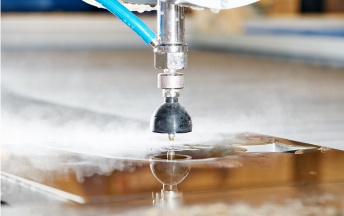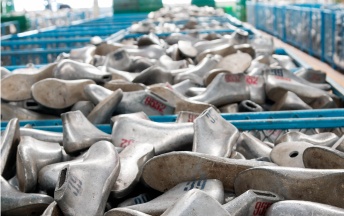Mercury’s Footwear
Sourcing Environmental Responsibility

Test Sourced Materials For Environmental Compliance
The footwear sourcing factory is the point where multiple product resources come in via third parties from a wide variety of locations and manufacturers. Ensuring environmental responsibility is carried out by third-parties is difficult to control.
If a chemical or toxin is detected, we’re not compliant. That’s why at Mercury we issue our own testing process, so that every material we use meets the most stringent chemical compliance standards on multiple levels.

Adopt New Ways To Reduce Or Eliminate Scrap Rates
We’re working hard on sustainable footwear manufacturing, both in terms of properly recycling scrap that’s produced and reducing waste through internal production initiatives at our partner factories.
For example, by using water-jet-cutting machines rather than laser-cutting machines, we may only see incremental gains in scrap reduction in the short term. However, over the course of a year, those gains add up to significant savings. We also ensure new technologies are capable of maintaining efficiency and speed in the full-blown production environment.

Create A Clean Waste Stream By Separating Materials
Relatively speaking, manufacturing shoes is not a highly toxic process. However, footwear factory compliance standards do work to reduce chemical fumes by controlling volatile solvents so there’s no direct point of emission out of the factory or in the face of employees.
We also separate materials for recycling, another step in providing a clean waste stream from our factories. We’re moving away from synthetic materials to use more natural materials. That’s also why we don’t look to the regrind market for recycled rubber, because there’s no way to account for the chemical purity requirements we’re subject to.



